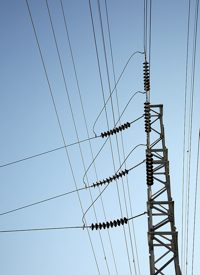
He also told EPA Administrator Lisa Jackson and the roughly 800 EPA employees who gathered at the headquarters in Washington that new government regulations on power plant emissions will save "thousands" of lives and inhibit "cases of childhood asthma."
"Just a few weeks ago, thanks to the hard work of so many of you, Lisa and I were able to announce new common-sense standards to better protect the air we breathe from mercury and other harmful air pollution," Obama professed, referring to new federal rules adopted in December to regulate mercury and other emissions from coal power plants. "And because we acted, we’re going to prevent thousands of premature deaths, thousands of heart attacks and cases of childhood asthma."
In his succinct monologue, the President added that EPA regulations can help generate jobs and promote economic growth, such as through jobs wherein people work to restore contaminated areas and through fuel-efficient vehicles that will ease the burden of high gas prices so that consumers can "go spend on something else."
"Our country is stronger because of you," he assured the EPA employees. "Our future is brighter because of you. And I want you to know that you’ve got a president who is grateful for your work and will stand with you every inch of the way as you carry out your mission to make sure that we’ve got a cleaner world."
The President, during his first-ever visit to the agency, countered a gamut of Republican charges, assuring his audience that he did not embrace the notion that clean air and clean water stand opposed to economic growth. "That is a false debate. We don’t have to choose between dirty air and dirty water or a growing economy. We can make sure that we are doing right by our environment and in fact putting people back to work all across America," Obama contended, reminding the crowd of employees that previous to Richard Nixon’s presidency, before the agency was established, rivers caught fire and were devoid of life, completely ignoring the fact that states had for many years been steadily improving the quality of their water and air, without the existence of an EPA.
"When I hear folks grumbling about environmental policy, you almost want to do a 'Back to the Future' reminder of folks of what happened when we didn't have a strong EPA," Obama asserted.
Under the Obama administration, the EPA has adopted a slew of new environmental regulations, including a historic spike in fuel economy standards for vehicles, a rule that regulates the heat-trapping gases blamed for alleged global warming, and stringent regulations designed to curb mercury emissions from coal-fired power plants.
But Obama’s claim that such environmental regulations do not destroy jobs or hinder economic growth is highly contended, particularly as related to the development of the new power plant rules. As recently reported by The New American, two new EPA regulations affecting power plants, including the mercury rule, have already prompted plant operators to deadbolt older facilities, which industry analysts assure will lead to mass job layoffs and higher electric bills:
Due to new federal air pollution regulations, more than 32 power plants across the country will be forced to close their doors, according to a recent Associated Press survey. Those plants, which are mostly coal-fired, discharge enough electricity to supply more than 22 million households, the survey notes, and their closure will lead to job layoffs, depleted tax revenues, and a considerable hike in electric bills. The areas that will be hit hardest are the Midwest and in the coal belt (Virginia, West Virginia, and Kentucky), where dozens of plants will likely be retired.
And not only will the EPA rules contribute to unemployment and further economic decline, but they will also place a crippling damper on tax revenues in areas where energy producers are dominant economic drivers. Government officials in Salem, Massachusetts, are now scrambling to identify new sources of revenue as the city’s coal- and oil-fired power station begins shutting its doors, which will weed out Salem’s largest taxpayer. While tourism remains the economic engine in the city, notorious for the 1692 witch trials, the retirement of the Salem Harbor Station will devastate city revenues. Because of the station’s closing, Salem will have to forfeit $4.75 million of its $70 million in annual tax revenues.
But despite all these facts, the President’s speech, full of encouraging words to EPA employees, is almost sure to draw praise from Democrats and environmental activists who support the catalog of new regulations that have been shoveled onto the U.S. economy. Indeed, critics contend that Obama’s visit to EPA headquarters was simply a political scheme to garner election support.
The 2010 election that brought the House majority to the Republicans, helped weaken Obama’s campaign pledge to enact comprehensive legislation to address alleged climate change. But the true tipping point for Obama on the environmental front arrived in September, when — faced with heated criticism from Republicans and industry groups — he opposed a standard for the primary ingredient in lung-damaging smog, as he stonewalled a recommendation from Jackson and a group of EPA scientists.
With that in mind, as the President embarks on a heated 2012 reelection campaign, his schemes likely will involve rekindling any wavering support from environmental groups — who are key Obama backers — and recapturing his reputation as a valiant "pro-environment" President. Indeed, with the election nearing, every dollar and every vote counts — and President Obama’s perception is very keen in this arena.



